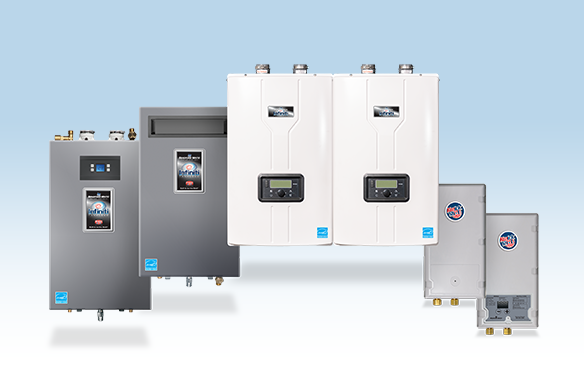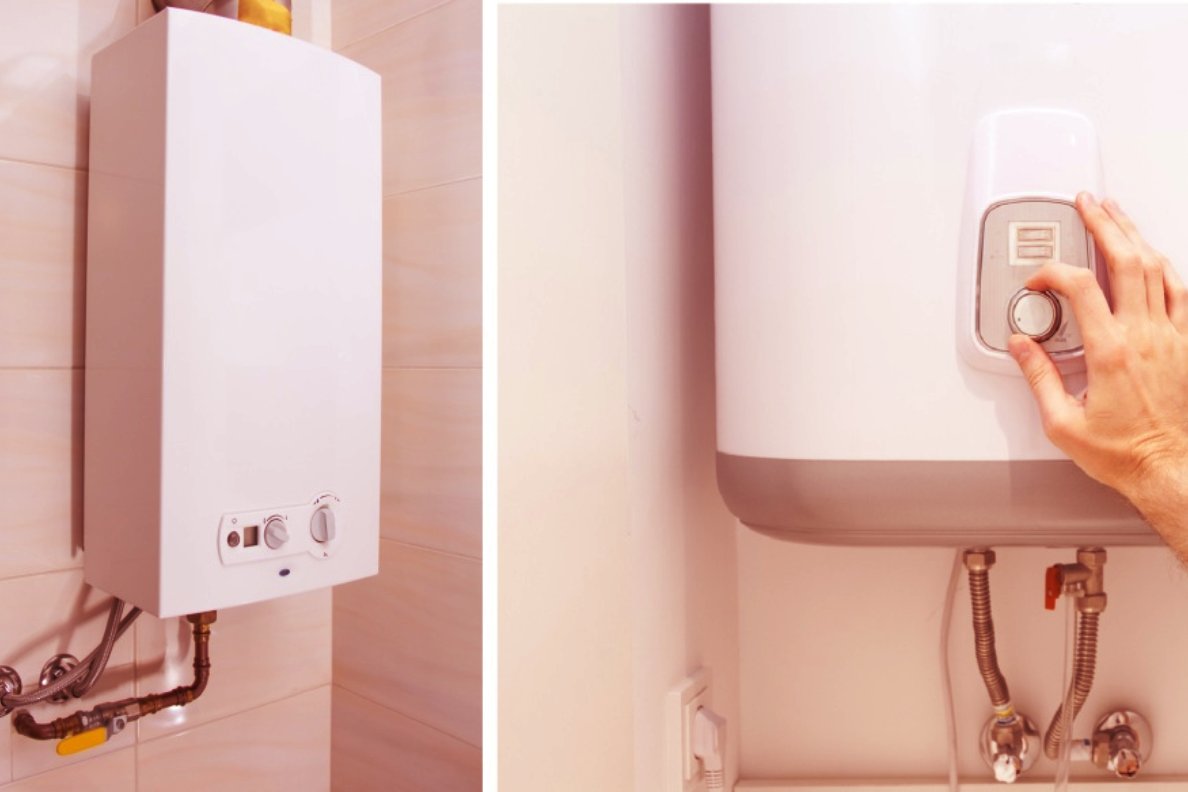How do you really feel with regards to 5 Benefits of Tankless Water Heaters?

In a globe where benefit and efficiency preponderate, it's no surprise that house owners are frequently in search of smarter means to handle their home's energy usage and convenience. One advancement that has actually gradually gotten appeal is the tankless hot water heater. Yet exactly what makes these systems stick out from the conventional tank-based versions the majority of us grew up with? Allow's dive in and explore the benefits of tankless hot water heater, helping you determine if it's time to make the switch in your house.
Introduction
Picture this: you enter the shower after a lengthy day, expecting a comforting cascade of warm water, only to be welcomed by icy beads because the last person utilized all of it up. Audio acquainted? Traditional water heaters store a fixed quantity of warm water, meaning you go to the grace of that storage tank's supply. Tankless systems, on the other hand, warm water as needed. No more running out mid-shower, no more wrestling with schedules simply to ensure warm water is available.
Understanding Tankless Hot Water Heater
What Are Tankless Water Heaters?
Tankless water heaters, sometimes called on-demand or instantaneous water heaters, provide warm water only as it's required. Instead of saving gallons of pre-heated water, these devices kick right into action the minute you switch on the faucet. Water passes through a heat exchanger, warming up in real-time, implying you obtain an uninterrupted circulation of warm water without the requirement for a huge tank sitting lazily by.
Just how Do They Differ from Conventional Equipments?
Traditional heating units hold a tank of warm water, making use of power to keep that container at a regular temperature. Tankless devices eliminate the standing supply, minimizing wasted power and the cumbersome impact of a huge cyndrical tube. Basically, you're upgrading from a "stockpile" state of mind to a "made-to-order" technique.
Usual Sorts Of Tankless Devices
Tankless hot water heater normally can be found in two varieties: gas and electric. Gas models tend to supply greater flow prices, ideal for bigger households, while electrical models often offer smaller homes and are commonly easier to set up. Additionally, some systems are created for point-of-use (offering one fixture) while others can take care of the entire home's warm water needs.
Secret Advantages of Tankless Water Heaters
1. Unlimited Hot Water Supply
Ever needed to set up showers so every person obtains their fair share of hot water? With tankless, that becomes a thing of the past. As long as the heater's flow capacity isn't surpassed, you can take back-to-back showers without developing into a popsicle.
2. Energy Effectiveness and Cost Financial Savings
Say goodbye to heating a giant storage tank's worth of water and keeping it toasty all day. Tankless heaters reduce standby energy losses, which can decrease energy bills. While the initial cost could be greater, the long-term savings typically warrant the investment.
3. Space-Saving Style
If your home is short on storage, getting rid of the cumbersome container liberates useful area. Tankless systems are small and can usually be mounted on walls, tucked away in corners, or mounted in tight energy closets without hogging the whole room.
4. Longer Life-span
A properly maintained tankless hot water heater can outlive its tank-based cousin. Traditional containers may last 10-15 years, while tankless models can maintain chugging along for two decades or even more, making them a solid financial investment over time.
5. Improved Water High Quality
Saving water in a tank can occasionally lead to sediment accumulation or a slightly "off" preference. With tankless systems, fresh water is heated on the spot, minimizing the opportunities of debris accumulation and possibly supplying cleaner-tasting water.
Considerations Before Switching
Though the advantages are compelling, it's a good idea to think about a few elements before completely committing.
First Financial Investment Prices
Tankless heaters normally feature a higher upfront price tag. Between the device itself and prospective installment alterations, the first expense could provide you sticker label shock. But bear in mind to view it as a long-lasting investment.
Setup Needs
Depending on your home's infrastructure, you may require added electric capability or gas line upgrades. Guarantee you comprehend the installment requirements and speak with an expert to stay clear of shocks.
Assessing Your Home's Water Usage Patterns
If your family all at once uses multiple components with high hot water need, ensure the system's circulation rate meets your requirements. Understanding your use patterns assists you select the ideal dimension and sort of tankless heater.
Upkeep and Care Tips
Tankless systems are fairly low upkeep, however they aren't set-it-and-forget-it home appliances.
Regular Cleansing and Descaling
Difficult water minerals can build up in the warmth exchanger, influencing effectiveness. Normal descaling (usually suggested each year) maintains the unit going for peak performance.
Annual Expert Examinations
A yearly checkup from a professional ensures minor concerns are caught early. They'll evaluate the unit's efficiency, seek leakages, and help keep ideal efficiency.
Making Certain Correct Air Flow
For gas models, correct ventilation is vital to safely eliminate exhaust gases. Ensure venting systems are clean and properly set up to stop any kind of potential security hazards.
Contrasting Different Brands and Designs
Not all tankless hot water heater are developed equal.
Looking Into Reliable Producers
Search for credible brands with a history of generating high quality units. A trusted maker typically offers far better client support and longer guarantees.
Checking Out Testimonials and Customer Responses
Customer evaluations and comments from neighbors or close friends that have gone tankless can provide important insights. Occasionally, real-life experiences can be a lot more telling than marketing brochures.
Installment: DIY or Professional?
While some home owners delight in tackling tasks themselves, tankless setup may not be the very best time to break out the toolbox.
Advantages and disadvantages of DIY Installment
A do it yourself mount could conserve cash, yet it features threats. Wrong installment can bring about inadequacy or security worries. If you come in handy and have experience, it could be practical-- however proceed with care.
When to Call an Expert Plumber
For the majority of, calling a professional guarantees everything's done appropriately. A professional plumbing technician understands neighborhood codes, sizing requirements, and airing vent criteria, reducing the risk of incidents.
Making the most of Efficiency
You've invested in a tankless device-- currently optimize its performance.
Ideal Temperature Settings
Many people establish their devices between 120-140 F. Changing the temperature can enhance convenience and savings. Experiment to locate a wonderful spot that doesn't waste power.
Coupling With Low-Flow Fixtures
Intend to stretch your unit's capabilities? Think about setting up low-flow showerheads and taps. They decrease water use, allowing your tankless system to provide a steady stream of hot water without stressing.
Environmental Impact
Tankless hot water heater straighten with greener living objectives.
Reduced Carbon Impact
By utilizing much less power and just heating water as needed, tankless systems can lower your home's carbon impact, lowering your ecological impact.
Preserving Natural Resources
Less energy usage and less lost hot water equate into less natural resources being used, an environmental win-win.
That Profits A Lot Of from Tankless Heaters?
The elegance of tankless heaters is that they can fit a variety of houses.
Large Families vs. Solitary Occupants
Big households could love the unlimited hot water supply, while solitary occupants value the power financial savings from not warming an entire storage tank for simply someone's early morning shower.
Homeowners with Minimal Space
If your home is short on square video footage, shedding the large tank frees up area for various other basics-- or possibly just more elbow room.
Eco-Conscious Customers
Going tankless aligns with eco-friendly worths, ensuring you're not wasting power or resources.
Future Trends in Tankless Water Heaters
The world of home appliances is ever-evolving, and tankless water heaters are no exemption.
Smart Home Integration
Picture adjusting your hot water heater's temperature using an application or receiving maintenance signals on your phone. As clever home tech advancements, we'll see even more connectivity and convenience.
Innovations in Innovation
R&D is continuously boosting warm exchangers, making devices much more reliable and long lasting. Future models could be also quieter, a lot more compact, and far better fit for varying climates.
Verdict
Choosing a tankless water heater is greater than just updating your home's hot water system; it's investing in long-lasting convenience, energy performance, and a greener way of living. By considering your home's water usage, being mindful of installment needs, and committing to regular upkeep, you can take pleasure in a consistent stream of warm water without the baggage of a bulky storage tank. As technology develops, you can look forward to also smarter, more reliable tankless solutions that not just make your life less complicated yet additionally profit the world.
Why You Should Consider a Tankless Water Heater for Your Home
Energy Efficiency and Cost Savings
Tankless water heaters, also known as on-demand water heaters, heat water only when needed. This means they don't waste energy keeping a tank of water hot constantly. This efficiency translates into substantial cost savings on your monthly energy bills.
Endless Hot Water Supply
One of the significant advantages of tankless water heaters is their ability to provide a continuous supply of hot water. Traditional tank water heaters have a limited capacity and can run out of hot water, especially during peak usage times. In contrast, tankless water heaters can provide an endless stream of hot water, making them ideal for larger families or homes with high water usage.
Space-Saving Design
Tankless water heaters are compact and take up significantly less space compared to traditional tank heaters. They can be installed on walls, under cabinets, or even outside, freeing up valuable space in your home. This makes tankless water heaters a great option for smaller homes or properties with limited space for a traditional water heater.
Longer Lifespan and Lower Maintenance
Tankless water heaters typically have a longer lifespan compared to traditional tank heaters. They can last up to 20 years or more with proper maintenance. Additionally, tankless systems are designed with replaceable parts, which can extend their lifespan further and reduce long-term maintenance costs.
Environmentally Friendly
Reducing energy consumption not only saves you money but also benefits the environment. Tankless water heaters contribute to a smaller carbon footprint by using less energy to heat water. Their energy efficiency and ability to minimize standby heat loss make them an eco-friendly choice for environmentally conscious homeowners.
Customized Temperature Control
Tankless water heaters offer precise temperature control, allowing you to set the desired temperature to meet your specific needs. This level of customization ensures you always have water at the perfect temperature for your comfort and usage requirements.
https://beantownservices.com/blog/consider-tankless-water-heater-for-your-home

I'm very interested by Unveiling the Hot Trend: The Benefits of Tankless Water and I'm hoping you liked the article. For those who appreciated our page kindly be sure to pass it around. Many thanks for your time spent reading it.
This Page
Comments on “Learning About The Upsides Of Smart Water Heaters”